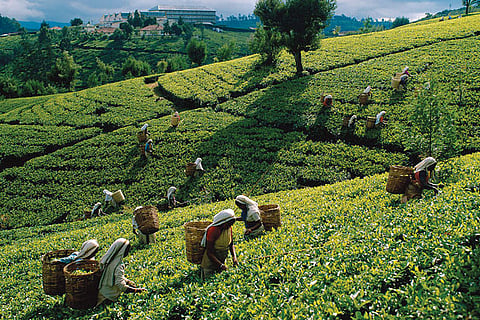The making of the marginalised
Historical, political and economic analysis of post-colonial Sri Lanka cannot avoid confronting the predicament of the Up-country Tamils, the community brought over as indentured labour by the British first to work on the country's coffee plantations and then its tea plantations in the 19th and early 20th centuries. From their harrowing journey to Ceylon in slave-like conditions, to the brutalities of estate work, to their disenfranchisement and statelessness after independence, to their displacement within Sri Lanka and part repatriation to India where they endured further torment, the Up-country Tamil narrative is integral to understanding the tragic predicament of modern-day Sri Lanka. Indeed, the building of a post-colonial society known for its social welfare developmental state depended on the exploitation of the very Up-country Tamils whom the state disenfranchised and silenced. Yet, the story of this community and their quandaries has remained largely under-documented.
This gap is filled in part by Daniel Bass' well-researched and carefully written work Everyday Ethnicity in Sri Lanka: Up-country Tamil identity politics. His work has emerged in Sri Lanka's post-war era, and one question that guides his anthropological account is whether this era will afford new political opportunities for this historically marginalised community. Bass' field research spans multiple visits to Sri Lanka and India between the late-1990s to the late-2000s, coinciding with some of the heaviest fighting during Sri Lanka's armed conflict. He narrates the history of this community and closely records their cultural practices, and his bibliography is an excellent record of works on the estates and the Up-country Tamils. Bass aptly describes how the disenfranchise-ment of the Up-country Tamils was one of the first symptoms of an emergent conflict eventually leading to the war that would ravage the country. Ultimately, he sees the post-war climate as one where reconciliation has not emerged and repression of minorities continues.

